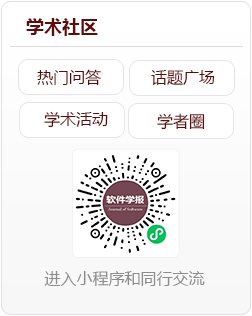Performance Modeling and Anomaly Location of Large Microservice Systems Based on Trace Control Flow Analysis
Author:
Affiliation:
Clc Number:
TP311
Fund Project:
Get Citation
于庆洋,白晓颖,李明杰,李奇原,刘涛,刘泽胤,裴丹.基于调用链控制流分析的大型微服务系统性能建模与异常定位.软件学报,2022,33(5):1849-1864
CopyShare

Article Metrics
- Abstract:
- PDF:
- HTML:
- Cited by:
History
- Received:March 30,2020
- Revised:June 11,2020
- Adopted:
- Online: May 09,2022
- Published: May 06,2022
You are the firstVisitors
Copyright: Institute of Software, Chinese Academy of Sciences Beijing ICP No. 05046678-4
Address:4# South Fourth Street, Zhong Guan Cun, Beijing 100190,Postal Code:100190
Phone:010-62562563 Fax:010-62562533 Email:jos@iscas.ac.cn
Technical Support:Beijing Qinyun Technology Development Co., Ltd.
Copyright: Institute of Software, Chinese Academy of Sciences Beijing ICP No. 05046678-4
Address:4# South Fourth Street, Zhong Guan Cun, Beijing 100190,Postal Code:100190
Phone:010-62562563 Fax:010-62562533 Email:jos@iscas.ac.cn
Technical Support:Beijing Qinyun Technology Development Co., Ltd.



